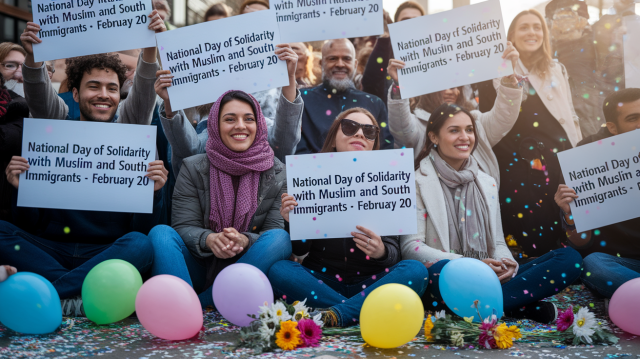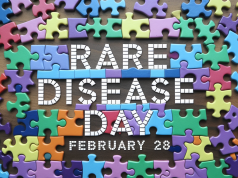The National Day of Solidarity with Muslim, Arab, and South Asian Immigrants, observed annually on February 20, is a day dedicated to supporting and standing in unity with these communities. It recognizes the challenges they face, including discrimination and xenophobia, while celebrating their contributions to society. This day serves as an opportunity to foster understanding, promote inclusivity, and advocate for justice and equality.
Why Is It Celebrated?
This special day is celebrated to highlight the importance of solidarity with Muslim, Arab, and South Asian immigrants, particularly in the face of prejudice and systemic injustices. It aims to bring attention to the struggles these communities have endured while honoring their resilience and cultural richness. The day encourages people to stand against hate and discrimination while promoting unity and mutual respect.
Cultural Significance
The National Day of Solidarity reflects the values of community and inclusion:
- Cultural Contributions: Muslim, Arab, and South Asian immigrants have enriched societies worldwide through their traditions, cuisine, art, and innovations.
- Shared Humanity: The day emphasizes the importance of embracing diversity and recognizing common human experiences.
- Historical Context: It acknowledges the historical challenges these communities have faced, including post-9/11 discrimination and ongoing stereotypes.
Celebrations often include:
- Community gatherings that showcase cultural performances and storytelling.
- Educational events to raise awareness about the history and contributions of these immigrant groups.
- Advocacy campaigns promoting policies that protect immigrant rights.
Social Impact
The National Day of Solidarity fosters unity by bringing people together to support marginalized communities. It strengthens bonds across cultures and promotes dialogue that helps break down stereotypes. The observance also inspires collective action toward creating a more equitable society.
The Importance of It
Educational Value
This day provides an opportunity to learn about the history, struggles, and achievements of Muslim, Arab, and South Asian immigrants. Workshops, lectures, and discussions help dispel misconceptions and encourage empathy.
Emotional Connection
For many individuals from these communities, this day represents acknowledgment and validation of their experiences. It fosters a sense of belonging while encouraging others to stand in solidarity with them.
The Origin of It
The National Day of Solidarity with Muslim, Arab, and South Asian Immigrants emerged in response to increased discrimination against these groups following events like 9/11. Activists and organizations sought to create a platform for raising awareness about their challenges while celebrating their contributions to society.
Historical Events
- Post-9/11 Era: Heightened Islamophobia and racial profiling led to calls for solidarity with affected communities.
- Advocacy Movements: Organizations advocating for immigrant rights played a key role in establishing this day.
Evolution Over Time
Initially focused on addressing post-9/11 discrimination, the observance has expanded to include broader issues such as immigration reform, civil rights advocacy, and cultural celebration.
How to Celebrate
Here are meaningful ways to observe the National Day of Solidarity with Muslim, Arab, and South Asian Immigrants:
- Attend Cultural Events: Participate in programs showcasing music, dance, art, or cuisine from these communities.
- Educate Yourself: Learn about the history and contributions of Muslim, Arab, and South Asian immigrants through books or documentaries.
- Support Advocacy Groups: Donate to or volunteer with organizations working for immigrant rights.
- Engage in Dialogue: Host or attend discussions that address issues like discrimination or immigration reform.
- Share Stories Online: Use social media platforms to amplify voices from these communities using hashtags like #SolidarityDay.
- Stand Against Hate: Take a pledge to combat xenophobia in your community by promoting inclusivity.
Conclusion
The National Day of Solidarity with Muslim, Arab, and South Asian Immigrants on February 20 is more than just a day—it’s a call to action for unity, understanding, and justice. By celebrating their contributions while addressing the challenges they face, we can build bridges across cultures and create a more inclusive society. Let this day inspire us all to stand together in solidarity for equality and mutual respect.











